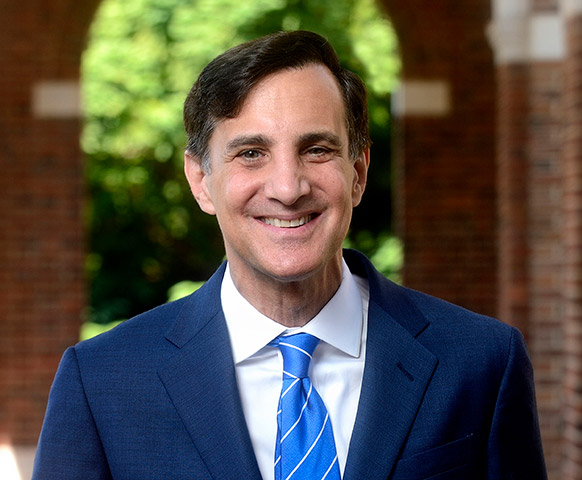
Image caption:
Ronald J. Daniels
President
"The right of citizens of the United States to vote shall not be denied or abridged by the United States or by any State on account of sex."
One hundred years ago, these 28 words entered into law when Tennessee became the 36th state to ratify the 19th Amendment to the United States Constitution. In an instant, millions were enfranchised. But, in truth, there was nothing instantaneous about it. This moment was the culmination of careful organizing, dialogue, and legislative maneuvering carried out by women across generations, including many women of color who were still denied their chance to cast a vote even after ratification.
In commemoration of the 19th Amendment's centennial, Johns Hopkins held a series of events this fall to celebrate and reflect upon its complex legacy. Examining this watershed moment in history with so many illustrious thinkers and practitioners—including Society of Black Alumni Presidential Professor and history Professor Martha S. Jones and former Maryland Senator and Homewood Professor of Public Policy Barbara Mikulski—underscored in the most vivid terms just how sacred, foundational, and hard-won the vote is.
When you read this note, the nation will be mere weeks after a momentous election, which arrived not only in the midst of a historic pandemic that has dramatically changed the conditions and methods for voting but also at a critical juncture for liberal democracy. Indeed, for the first time in nearly 20 years, a majority of the world's nations now qualify as autocracies.
At Hopkins, we have dedicated ourselves to strengthening democratic engagement across our campuses and cultivating in our students the abilities that are central to democratic citizenship: critical thinking skills, the reliance upon reason and research to make informed decisions, and the capacity to engage in substantive dialogue with those who hold divergent views.
We expanded our nonpartisan voting initiative, Hopkins Votes, to get students to the polls. The SNF Agora Institute has been hosting regular and vital conversations on the state of democracy with experts, practitioners, and policymakers from across the political spectrum. Our Common Question program—which brings first-year students together with peers and faculty from our Krieger and Whiting schools and Peabody Institute to discuss a big idea—has taken up the timely question, What is the common good? The Hub recently launched the Democracy Project, a series from a diverse array of Hopkins scholars sharing their perspectives and insights on democracy. And every day, through rigorous scrutiny and debate, our faculty are advancing research that is helping affirm standards of truth, neutralize disinformation, and shape sound public policy.
In sum, universities such as ours remain indispensable to the democratic experiment as we grapple honestly with its past while working to preserve its future and make it more equitable for all.

Ronald J. Daniels
President







